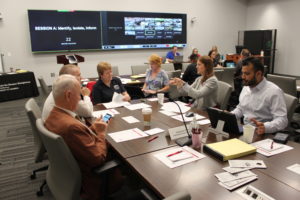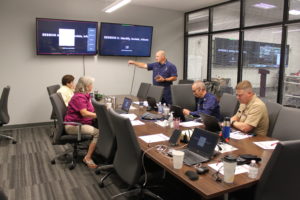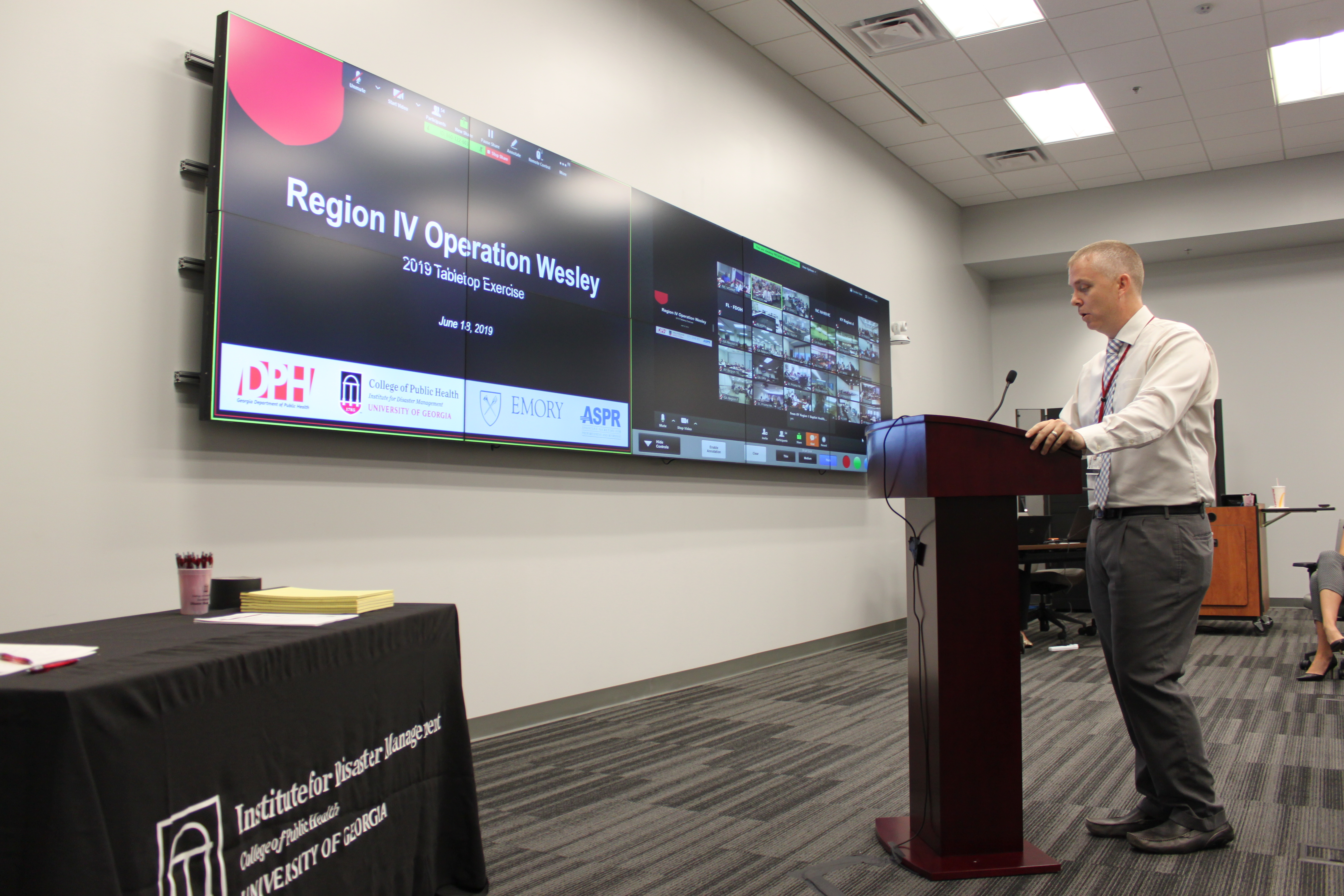In September 2014, the first-ever confirmed case of travel-associated Ebola arrived on U.S. soil. Since that time, emergency planners across the country have been working to prepare our healthcare systems and communities to respond to highly infectious diseases
In the largest Ebola response training to date, a team of planners led by faculty and staff at the University of Georgia hosted a tabletop exercise engaging nearly 45 emergency response coalitions and various state and federal partners across six Southeast states within the U.S. Department of Health and Human Services’ (HHS) Region IV.
Supported by a grant from the Healthcare Preparedness Program at the Georgia Department of Public Health, the Institute for Disaster Management at UGA’s College of Public Health facilitated the training in their Emergency Operations Center on June 18th in Athens, Georgia.
“The purpose of this exercise is to evaluate what we call our tier three frontline facilities in Georgia,” said Dr. Curt Harris, associate director of the Institute for Disaster Management.
“We want to ensure that all providers who encouter a patient with a highly infectious disease knows how to identify and isolate them, and ultimately inform authorities so the patient can get to definitive care and minimize the risk to the public.”
In addition to hospitals, frontline facilities include primary care clinics, urgent care clinics, paramedics, dialysis clinics, school nurses, law enforcement officers, and many other disciplines.
Training frontline facilities to respond quickly and appropriately to a possible Ebola patient is crucial to preventing the spread of the disease and protecting our workforce.
“These providers need to remember to ask not only about symptoms, but recent travel history, because that’s really the clue,” said Kelly Nadeau, the director of the Healthcare Preparedness Program for the Georgia Department of Public Health.
The daylong exercise included five sessions that walked coalitions through the proper protocols to safely handle an Ebola patient and prevent an outbreak.
The value of the tabletop exercise is that it brings together all these people who may play a role in the response, said Captain Paul Link, field project officer for HHS Region IV and one of several federal partners on hand to provide feedback to participants.
“All the subject matter experts are putting their heads together, reviewing the plan, consulting on what will and what won’t work,” Link said.
The exercise, which served as a test run for a full-scale exercise taking place in November, will ultimately help federal planners and their local partners inform and update their infectious disease response plan.
Though the funding supporting this training is targeted to Ebola response, the exercise is preparing Georgia to handle any infectious disease threat, said Nadeau.
“By making sure we’re prepared to respond to those very deadly things, we also are better prepared for flu and measles and chickenpox, the other things that are highly communicable and that we have issues with all the time,” she said.
“We do prepare for all kinds of things that we hope will never happen, but we want to be well prepared just in case, so the public is safer.”
IDM collaborated with partners at the Georgia Department of Public Health, the National Ebola Training & Education Center at Emory University, Metro Atlanta Ambulance Service, the Georgia State Patrol Office, and the Office of the Assistant Secretary for Preparedness and Response (ASPR) under HHS as well as 14 coalitions from Georgia and coalitions from 6 partnering HHS Region IV states to plan and execute the event.
– Lauren Baggett
Posted on July 11, 2019.
Additional coverage ASPPH Friday Letter.









